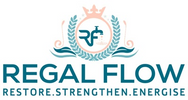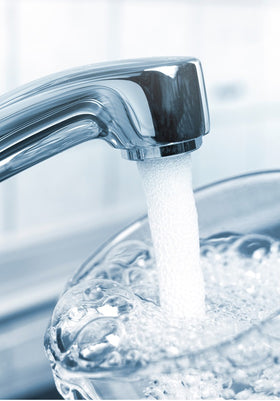
How to Tell if You Have Hard Water Hair
Hair feeling dry or lifeless? Hard water could be to blame. Packed with minerals, it can ruin your hair’s health without you knowing. In this guide, we’ll show you how to spot the signs—and explore the Benefits & Effects of Soft Water for restoring softness, shine, and manageability.
Identifying the Signs of Hard Water Impact on Your Hair
Look for a Dull or Lifeless Appearance
Has your hair lost its natural shine, looking more “meh” than marvellous lately? If it feels like your strands are always falling flat or looking greyed out, hard water could be the reason. Mineral deposits cling to the hair shaft, building up like a foggy filter that dulls everything down.
Notice Increased Tangling and Knots
Tired of wrestling with knots after every shower? Hard water roughens up the hair cuticle, making strands more prone to catch and tangle. If your detangling brush has become your worst enemy, it’s time to question what’s flowing out of your showerhead.
Feel for a Dry or Brittle Texture
Run your fingers through your hair. Does it feel crispy, straw-like, or just plain rough? That’s a classic sign that hard water has stripped away your hair’s natural oils. Without those oils, hair loses its bounce and becomes more vulnerable to breakage.
Observe Difficulty in Lathering Shampoo
You squeeze out your usual blob of shampoo—but it barely lathers. So you add more. And more. Still nothing. Sound familiar? Minerals in hard water make it harder for products to foam, leaving you using double the amount for half the effect.
Check for Residue or Film on Your Hair
Ever rinsed and rinsed, but your hair still doesn’t feel quite clean? That sticky or chalky feeling could be leftover mineral residue. It doesn’t just affect how your hair feels—it can weigh it down, dull your style, and leave it looking greasy even when freshly washed.
Experience Faster Colour Fading (if Hair is Dyed)
Invested in a stunning new hair colour, only to watch it fade faster than a British summer? Hard water is often the culprit. It lifts the colour molecules out of your strands, making your vibrant tones fade more quickly and unevenly.
Simple Tests to Confirm Hard Water Hair
The Squeaky Clean Test (and Why It's Misleading)
You know that squeaky-clean sound your hair makes when you rinse it? It might seem satisfying, but it’s actually a red flag. That squeak means your natural oils have been stripped away—often by mineral-heavy water. Clean hair shouldn’t sound like rubber soles on a polished floor.
Observing Build-up on Shower Doors and Fixtures
Take a good look at your shower doors, taps, and tiles. Are there white, crusty spots or a foggy residue that never seems to disappear? That’s mineral build-up—and if it’s clinging to your bathroom, it’s clinging to your hair too.
Differentiating from Other Hair Issues
It’s easy to blame product build-up, poor diet, or over-styling for hair problems. But hard water damage has a unique signature. It affects your entire haircare routine—your shampoo won’t lather, conditioner won’t hydrate, and your hair simply won’t behave. Unlike heat damage, which tends to cause split ends and breakage at the tips, hard water impacts the texture, manageability, and cleanliness of your whole head of hair. If your go-to fixes aren’t working, it’s worth testing your water quality.
What to Do If You Suspect Hard Water Hair
If your hair matches the signs above, don’t panic—there’s plenty you can do. Start with a shower filter. These attach easily to most showerheads and trap the minerals before they hit your scalp. You’ll often notice a difference within a few washes. Use a clarifying shampoo once a week to break down mineral build-up. Follow with a nourishing deep conditioner to replenish lost moisture. For colour-treated or severely damaged hair, consider a chelating shampoo. These are specially formulated to combat hard water minerals. If you want to go all-in, a whole-home water softener or reverse osmosis system will treat the water at the source, benefiting not just your hair, but your skin, laundry, and plumbing too.
Conclusion: Recognising and Addressing Hard Water's Effects
Hair not feeling quite right despite your best efforts? Hard water might be silently undoing all your good hair days. By learning how to spot the signs and take action, you can turn things around. From installing filters to switching up your products, there are plenty of ways to fight back. Because everyone deserves hair that feels as fresh as it looks—and it starts with what’s coming out of your taps.
More Water Softener info our customers have found helpful
Top Benefits of Installing a Water Softener in Your Home
Is Soft Water Better for Your Skin?
Can You have a Boiling Water Tap with a Water Softener?
Will a Water Softener Remove Build-up in Pipes?
How Long Does it Take a Water Softener to Clear Pipes?
Can I Run Hot Water Through a Water Softener?
Does a Water Softener Affect Cold Water?



Leave a comment